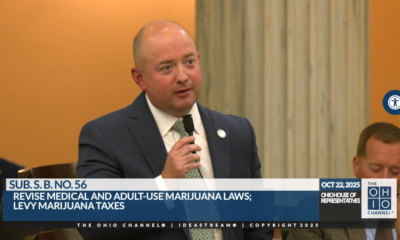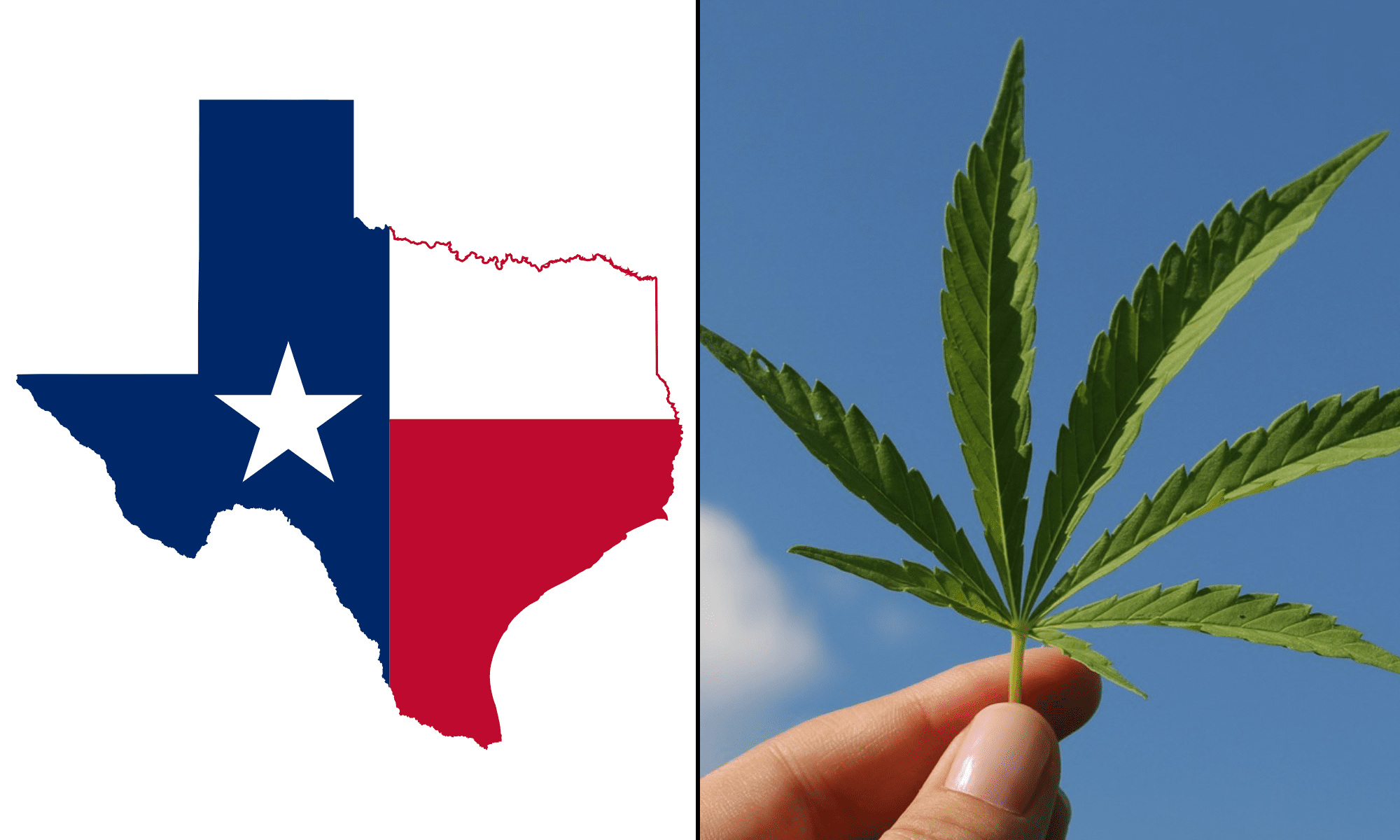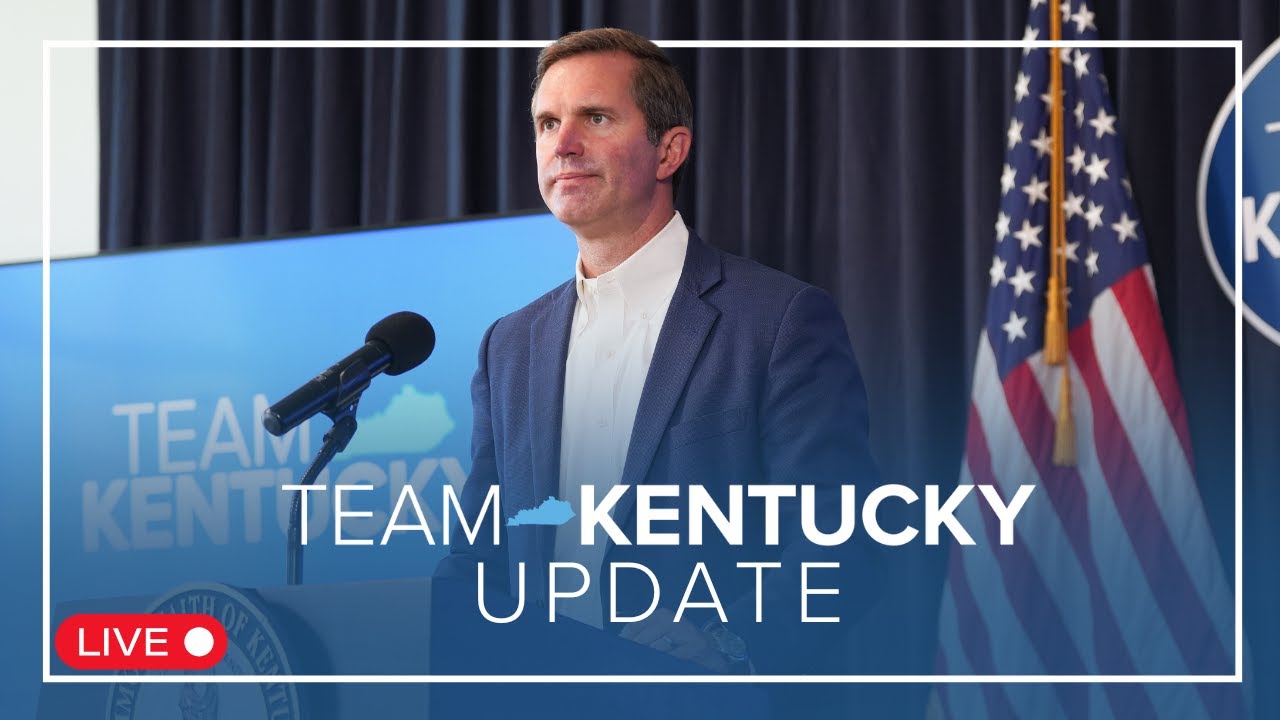featured
Older Adults Increasingly Identify as Cannabis Consumers
Published
3 hours agoon


Nearly one in five middle-aged adults acknowledge consuming cannabis, according to data published in the American Journal of Preventive Medicine.
Investigators affiliated with Columbia University in New York analyzed results from the Health and Retirement Survey — a nationwide survey of older adults.
Researchers reported that 19 percent of adults aged 50 to 64, and six percent of adults over the age of 65 acknowledge having consumed cannabis products within the past 12 months. The findings are consistent with data published in July in the Journal of the American Medical Association, as well as with separate data provided by AARP, finding that rising percentages of middle-aged and older adults are consuming marijuana products.
The study’s authors also reported that 75 percent of respondents favored the use of medical cannabis, a finding that is also consistent with prior surveys, and that many older adults use cannabis therapeutically without consulting directly with their physician.
“It is not surprising that a growing percentage of adults consider cannabis to be a viable option in their later years,” NORML’s Deputy Director Paul Armentano said. “Many middle-aged and older adults struggle with pain, anxiety, restless sleep, and other conditions that cannabis products can mitigate. Many older adults are also well aware of the litany of adverse side-effects associated with available prescription drugs, like opioids or sleep aids, and they see medical cannabis as a practical and potentially safer alternative.”
Separate survey data published last year in the Journal of Primary Care & Community Health determined that most older adults hold positive perceptions about cannabis, and several recent studies show that marijuana use is frequently associated with quality of life improvements among seniors.
An abstract of the study, “Epidemiology of cannabis use among middle-aged and older adults in the United States,” appears in the American Journal of Preventive Medicine. Additional information is available from the NORML Fact Sheet, ‘Cannabis Use by Older Populations.’
Related

Author: mscannabiz.com
MScannaBIZ for all you Mississippi Cannabis News and Information.
You may like
-


Texas Officials Adopt Rules To Expand Number Of Medical Marijuana Dispensaries In the State
-


Cannabis Ventures, Start-Up Best Practices, and Ways to Compete
-


Kentucky Governor Touts Surge In Medical Marijuana Patient And Business Approvals As State Prepares For Program Launch
-


SCOTUS cannabis & guns case gets delay request (Newsletter: October 24, 2025)
-


Ohio House Passes Cannabis, Hemp Bill Resulting From ‘Venn Diagram From Hell’
-


What To Know About Cannabis And A Brain Aneurysm
featured
Texas Officials Adopt Rules To Expand Number Of Medical Marijuana Dispensaries In the State
Published
1 hour agoon
October 24, 2025
Texas officials have formally adopted new rules to implement a law significantly expanding the state’s medical marijuana program.
About two months after the Department of Public Safety (DPS) posted the proposed rules—after which point a 30-day public comment period was completed—the regulations were finalized and published in the Texas Register on Friday.
This specific set of rules will increase the number of licensed dispensaries, establish security requirements for “satellite” locations and authorize the revocation of licenses for certain violations.
DPS will ultimately be issuing 12 new licenses for dispensaries across the state. Currently there are only three. The additional licensees will go through a competitive process, with officials prioritizing Texas’s public health regions to optimize access.
The first round of licenses will be awarded to nine of 139 applicants who submitted their forms during an earlier application window in 2023. DPS will select those nine licensees on December 1. The 2023 applicants that didn’t receive a license, as well as any new prospective licensees, will have another shot at getting their license during a second round where awardees will be announced on April 1, 2026.
The finalized rules also lay out security parameters for dispensaries with satellite locations approved by the department, including mandates to “designate an enclosed locked area within the satellite location where low-THC cannabis product is stored that provides reasonably adequate security against theft and diversion” as well as “designate an individual, or a limited number of individuals, with responsibility for and with the authority to enter or control entry” into those secure areas.
Additionally, they specify policies allowing regulators to revoke licenses for violations such as not having cannabis products available within 24 months of a license issuance, failing to “promptly and accurately fill prescriptions” and not “continuously” producing cannabis “in a manner consistent with the level of demand for the licensee’s product.”
DPS received two comments on the rules when they were up for public review, but no changes were made based on the feedback.
In addition to increasing the number of dispensaries in the state, the law signed by the governor also expands the state’s list of medical cannabis qualifying conditions to include chronic pain, traumatic brain injury (TBI), Crohn’s disease and other inflammatory bowel diseases, while also allowing end-of-life patients in palliative or hospice care to use marijuana.
That policy change is automatically adopted via the enacted statute, so it took effect on September 1 without further rulemaking.
Also in line with the state’s medical cannabis expansion law that Gov. Greg Abbott (R) signed, the state Health and Human Services Commission (HHSC) proposed rules last month to let physicians recommend new qualifying conditions for cannabis and to create standards for allowable inhalation devices.
—
Marijuana Moment is tracking hundreds of cannabis, psychedelics and drug policy bills in state legislatures and Congress this year. Patreon supporters pledging at least $25/month get access to our interactive maps, charts and hearing calendar so they don’t miss any developments.![]()
Learn more about our marijuana bill tracker and become a supporter on Patreon to get access.
—
Meanwhile, Department of State Health Services (DSHS) recently adopted a set of emergency rules meant to prevent the sale of intoxicating hemp products to people under 21.
After similar restrictions were implemented by the Texas Alcoholic Beverage Commission (TABC) late last month, DSHS announced that they’ve moved forward with the policies changes that comply with the governor’s recent executive order on hemp.
Meanwhile this month, the head of the Texas Department of Agriculture (TDA) pushed back against a GOP senator’s “incorrect assertions” about the state’s regulatory compliance with federal hemp laws. But he also signaled that changes may be coming to measure “total THC” to determine the legality of hemp products in a way that some stakeholders worry could negatively impact the industry.
After the legislature failed to pass a controversial bill to ban hemp products containing THC during two special sessions following the governor’s veto of a similar measure earlier this year, Abbott signed the executive order to impose certain restrictions on the market.
Separately, a recent survey from a GOP pollster affiliated with President Donald Trump found that Texas Democratic and Republican voters are unified in their opposition to the hemp ban proposal.
Image element courtesy of AnonMoos.

Author: mscannabiz.com
MScannaBIZ for all you Mississippi Cannabis News and Information.
featured
Cannabis Ventures, Start-Up Best Practices, and Ways to Compete
Published
2 hours agoon
October 24, 2025
Once relatively easy to break into, the cannabis industry now demands a leaner and more conservative approach to financial management, along with precise forecasting and a great deal of patience. There are inherent risks, regulatory uncertainties, and financial challenges faced by new market entrants and established operators alike. As the market continues to mature, so will your needs and approach.
Let’s take a look at some best practices for cannabis business start-ups within today’s landscape.
Structure, Build-Out, and Expectations
First, consult with your attorney and CPA regarding the type of business you’ll run in the context of the overall market. Will you be operating a cannabis dispensary or manufacturing entity? Are you a cultivator or a delivery service? Will you be vertically integrated?
While you might have a general idea of the structure for your business, financial and legal guidance on related taxation and liability can help refine your strategy to ensure the most profitable and sustainable operations.
As you map your entry into the cannabis space, you’ll first want to invest in some market analysis. Your market analysis should include research and data on market size, licensing policies of your particular municipality/state, competition, growth potential, and consumer preferences.
For retail, it should define the relevant population of your chosen market and provide insights into buying behavior for that demographic, the median household income, and the type of dispensary population growth that has occurred within a 5-, 10-, and 15-mile radius. For wholesale, consider strains, competition, and market saturation.
In addition to a market analysis, a start-up will need accurate cash flow projections, which should include revenue assumptions and financing, along with your timeline. If possible, benchmark assumptions against others in your particular market.
With the market analysis in hand, you can develop revenue projections. Consider your potential monthly purchaser base and its estimated spend. Of customer spend, what would be a realistic product breakdown? How do your intended SKUs compare with your competitors?
Finally, build detailed expense assumptions that include everything from furniture and fixtures to staffing, advertising, construction and renovation, professional services, taxes, facility maintenance, insurance, security, IT, and utilities. Keep in mind that the most successful start-ups are taking a cautious and conservative approach to their build-outs and are properly capturing costs to ensure they meet day-to-day business obligations.
Data and KPIs
Like all businesses, cannabis operations need to consistently capture data and maintain good books. Data capture can be conducted through technologies, including your inventory tracking, point of sale, accounting, and accounts payable systems. This process can then be systematized to provide the reports and analytics you need to monitor trends on the fly.
Next, identify Key Performance Indicators, or KPIs, and track their performance along with budget to actual on a post-build-out and ongoing basis. Ask yourself, do we have a realistic forecast that we could continually reassess? Solid preoperational numbers and forecasts are critical both at the point of operation and at set milestones, such as the first six, 18, and 24 months. This helps not only to refine business strategy but also to answer your investors when asked for a realistic breakeven point.
Data is crucial during the preoperational phase because it drives accurate management assumptions. It will also be critical in managing investor expectations. Consider one seemingly simple decision for a retail operator: Do we need a 1,000- or 10,000-square-foot store?
From this, you will need to determine how much of that space would be committed to sales, which may not be tax-deductible, and to inventory storage, which may be tax-deductible. Once you decide this, you will need to determine the number of employees required to run lean yet profitable operations.
Under these circumstances, what would be your estimated build-out costs? How much would you pay for rent? What’s the timing of various cash flows? Only with accurate data could you make the right determinations and measure the success of those decisions over time.
Using your initial data markers, you can then build out scenarios that allow you to visualize various options. For instance, see how results would look assuming a high-, mid-, and low-revenue operation. Likewise, you could model results under a high-salary/low-revenue versus a low-salary/high-revenue projection, as well as model against available benchmarks.
Note that if you have multiple lines of business, some of your data points will correlate. So, a combined dispensary and delivery business, for instance, could enjoy greater efficiencies. As you build out your plan, look closely for potential opportunities.
Another area where data is essential is inventory management and your business strategy around that. Use data to determine your best-selling strains, for instance, or those offering the greatest net margin potential. Keep in mind that, while one strain might be popular with consumers, the benefits to producing it could come at a price. So, evaluate whether it works to your advantage to continue with production or pivot to a less expensive strain.

Author: mscannabiz.com
MScannaBIZ for all you Mississippi Cannabis News and Information.
featured
Kentucky Governor Touts Surge In Medical Marijuana Patient And Business Approvals As State Prepares For Program Launch
Published
4 hours agoon
October 24, 2025
The governor of Kentucky is touting a milestone of registering more than 15,000 medical marijuana patients as the state’s program is set to launch—and he says officials are expected to have approved licenses for all four types of cannabis businesses to supply the market by next week.
During a briefing on Thursday, Gov. Andy Beshear (D) gave an update on the commonwealth’s progress to stand up the medical marijuana program. And in the nearly 300 days since the state started accepting patient applications, 21,000 electronic certifications have been processed. Of those, about 15,000 patients have been approved as card holders.
“Since taking office, my administration has been committed to providing access to health care and creating safe communities in Kentucky,” the governor said. “One of our priorities is to ensure that Kentucky suffering from PTSD and serious medical conditions like cancer or multiple multiple sclerosis can have safe access to medical cannabis as soon as possible to get the relief they need.”
Part of the success of the program rollout and large volume of patient certifications is the fact Kentucky now has about 500 doctors who are authorized to issue written medical cannabis recommendations.
“That number is set to grow as more health care providers complete training,” Beshear said.

After obtaining a written recommendation, patients use an online portal to submit the information to the Cabinet for Health and Family Services, after which point officials review the application and issue a medical cannabis card.
“We’re seeing strong engagement from our medical community, which shows confidence in this program,” he said. “We’re also making progress when it comes to the supply chain.”
There are four licensing categories within the state’s medical marijuana program: cultivators, processors, safety compliance facilities and dispensaries. The governor said “by next week, Kentucky will have approved licenses in each and every category, which is great news.”
He added that the first processor license applicant will have their facility inspected for approval on October 29, which will “complete the program’s full process cycle from cultivation to dispensary.”
“We’re getting closer to delivering on the promise of safe medical cannabis for Kentuckians in need,” Beshear said.
A Kentucky medical marijuana cultivation facility harvested its first yield of cannabis earlier this month, the Office of Medical Cannabis (OMC) said.
Last month, Beshear said he thought medical marijuana would be available to Kentucky patients by the end of 2025.
“I think most of our dispensaries now have their home address [and] are set about where they’re going to be, but [for] some of the inspections that have to happen in dispensaries, they have to have product that’s there,” he said. “So I do believe they’ll be operating before the end of the year.”
Those comments came roughly a month after the governor announced that the state’s first medical cannabis dispensary was officially approved for operations, calling it “another step forward as we work to ensure Kentuckians with serious medical conditions have access to the medicine they need and deserve.”
He previously touted an earlier “milestone” in the state’s forthcoming medical marijuana program, with a licensed cultivator producing “the first medical cannabis inventory in Kentucky history.”
In July, Beshear sent a letter to President Donald Trump, urging him to reject congressional spending bill provisions that would prevent the Justice Department from rescheduling marijuana.
In the letter to the president, he emphasized that a pending proposal to move cannabis from Schedule I to Schedule III under the Controlled Substances Act (CSA) is something “you supported in your presidential campaign.”
“That process should be allowed to play out. Americans deserve leadership that won’t move the goalposts on them in the middle of the game,” Beshear said, noting that he was among the tens of thousands who submitted public comments in favor of the reform after it was initiated under the Biden administration, “demonstrating broad public interest in rescheduling.”
“I joined that effort because this is about helping people. Rescheduling would provide suffering patients the relief they need,” the governor said. “It would ensure communities are safer—because legal medical products reduce the illicit market. It would provide new, meaningful research on health benefits.”
Beshear also mentioned a letter to DEA he signed onto last year urging rescheduling, “because the jury is no longer out on marijuana. It has medical benefits.”
Back on the state level, the governor recently said he acknowledges that “it’s taken longer than we would have liked” to stand up the industry since he signed medical marijuana legalization into law in 2023.
In recognition of that delayed implementation, he recently signed an executive order to waive renewal fees for patients who get their cards this year so that they don’t get charged again before retailers open. And another order he signed providing protections for qualified patients who obtain medical marijuana outside of Kentucky “will stay in place.”
Beshear separately announced in May that the state has launched a new online directory that lets people see where medical cannabis dispensaries will be opening near them.
He emphasized that the state has been working to deliver access to patients “at the earliest possible date,” and that involved expediting the licensing process. The governor in January also ceremonially awarded the commonwealth’s first medical marijuana cards.
—
Marijuana Moment is tracking hundreds of cannabis, psychedelics and drug policy bills in state legislatures and Congress this year. Patreon supporters pledging at least $25/month get access to our interactive maps, charts and hearing calendar so they don’t miss any developments.![]()
Learn more about our marijuana bill tracker and become a supporter on Patreon to get access.
—
Meanwhile, the governor sent a letter to Kentucky’s congressional delegation in January, “urging them to take decisive action to protect the constitutional rights of our law abiding medical cannabis patients” by repealing the federal ban on gun possession by people who use marijuana.
That came after bipartisan Kentucky senators filed legislation that similarly called on the state’s federal representatives to take corrective action, which Beshear said he supports but would like to see even more sweeping change on the federal level.
The federal Bureau of Alcohol, Tobacco, Firearms and Explosives (ATF) warned Kentucky residents late last year that, if they choose to participate in the state’s medical marijuana program, they will be prohibited from buying or possessing firearms under federal law.
As far as the implementation of the state’s medical cannabis law goes, Beshear said in his State of the Commonwealth address in January that patients will have access to cannabis sometime “this year.” He also later shared tips for patients to find a doctor and get registered to participate in the cannabis program.
Health practitioners have been able to start assessing patients for recommendations since the beginning of December.
While there currently aren’t any up-and-running dispensaries available to patients, Beshear has further affirmed that an executive order he signed in 2023 will stay in effect in the interim, protecting patients who possess medical cannabis purchased at out-of-state licensed retailers.
During last year’s November election, Kentucky also saw more than 100 cities and counties approve local ordinances to allow medical cannabis businesses in their jurisdictions. The governor said the election results demonstrate that “the jury is no longer out” on the issue that is clearly supported by voters across partisan and geographical lines.
Photo courtesy of Mike Latimer.

Author: mscannabiz.com
MScannaBIZ for all you Mississippi Cannabis News and Information.

Texas Officials Adopt Rules To Expand Number Of Medical Marijuana Dispensaries In the State

Cannabis Ventures, Start-Up Best Practices, and Ways to Compete

Older Adults Increasingly Identify as Cannabis Consumers

Kentucky Governor Touts Surge In Medical Marijuana Patient And Business Approvals As State Prepares For Program Launch

SCOTUS cannabis & guns case gets delay request (Newsletter: October 24, 2025)

Ohio House Passes Cannabis, Hemp Bill Resulting From ‘Venn Diagram From Hell’

What To Know About Cannabis And A Brain Aneurysm

MariMed to Expand Brand Distribution to New York

Time for a Cannabis Reboot: Local Roots, Fair Markets, Real Change

Ohio Health Agency Grants $400,000 To Fund Psychedelics Education And Training For First Responders, Doctors And More

Curio Wellness Acquires 4 Greenlight Dispensaries in Missouri

The best places to be high in Seattle

Colombia’s Bold Offer to Trump: Legal Weed Exports for Peace

Trump DOJ Asks Supreme Court For Delayed Schedule In Case On Marijuana Users’ Gun Rights

Whiskey Company Scales Back Operations, Citing ‘Consumer Shifts’ Toward Marijuana As Alcohol Alternative

Smart Cannabis: The AI Revolution No Operator Can Ignore

New Jersey Gubernatorial Candidates Need To Step Up For Cannabis Consumers (Op-Ed)

Millennials Are Spending Big on Luxury Travel

West Virginia Medical Marijuana Revenue Is Supposed To Support Drug Treatment Programs, But Sits Unspent As Officials Worry About Federal Prohibition

Frequent Marijuana Use Is Tied To Lower Risk Of Liver Disease From Alcohol, New Study Finds

Ohio bill to scale back cannabis legalization passed by House (Newsletter: October 23, 2025)

FDA Weighs Petition On ‘Significant Harm’ Of Marijuana Hair Testing Device’s Positive Results From Secondhand Smoke

Wisconsin Lawmakers Rally for Medical Cannabis Legalization in Committee Hearing

Massachusetts Campaign To Roll Back Marijuana Legalization Law Is ‘On Track’ To Make 2026 Ballot, Spokesperson Says

Alert: Department of Cannabis Control updates data dashboards with full data for 2023

Connecticut Appoints The US’s First Cannabis Ombudsperson – Yes there is a pun in there and I’m Sure Erin Kirk Is Going To Hear It More Than Once!

5 best CBD creams of 2024 by Leafly

Recreational cannabis on ballot for third time in South Dakota

EU initiative begins bid to open access to psychedelic therapies
New Study Analyzes the Effects of THCV, CBD on Weight Loss

Free delta-9 gummies from Bay Smokes

5 best autoflower seed banks of 2024 by Leafly

Discover New York’s dankest cannabis brands [September 2024]

Press Release: CANNRA Calls for Farm Bill to Clarify Existing State Authority to Regulate Hemp Products

May 2024 Leafly HighLight: Pink Runtz strain

5 best THC drinks of 2024 by Leafly

Local medical cannabis dispensary reacts to MSDH pulling Rapid Analytics License – WLBT

6 best CBD gummies of 2024 by Leafly

Curaleaf Start Process Of Getting Their Claws Into The UK’s National Health System – With Former MP (Resigned Today 30/5/24) As The Front Man

Horn Lake denies cannabis dispensary request to allow sale of drug paraphernalia and Sunday sales | News

5 best delta-9 THC gummies of 2024 by Leafly

The Daily Hit: October 2, 2024

Mississippi city official pleads guilty to selling fake CBD products

Nevada CCB to Accept Applications for Cannabis Establishments in White Pine County – “Only one cultivation and one production license will be awarded in White Pine County”

Weekly Update: Monday, May 13, 2024 including, New Guide for Renewals & May Board meeting application deadline

5 best THCA flower of 2024 by Leafly

6 best hemp pre-rolls of 2024 by Leafly

PRESS RELEASE : Justice Department Submits Proposed Regulation to Reschedule Marijuana
Trending
-

 California Cannabis Updates1 year ago
California Cannabis Updates1 year agoAlert: Department of Cannabis Control updates data dashboards with full data for 2023
-

 Breaking News1 year ago
Breaking News1 year agoConnecticut Appoints The US’s First Cannabis Ombudsperson – Yes there is a pun in there and I’m Sure Erin Kirk Is Going To Hear It More Than Once!
-

 best list1 year ago
best list1 year ago5 best CBD creams of 2024 by Leafly
-

 Business1 year ago
Business1 year agoRecreational cannabis on ballot for third time in South Dakota
-

 Business1 year ago
Business1 year agoEU initiative begins bid to open access to psychedelic therapies
-

 cbd1 year ago
cbd1 year agoNew Study Analyzes the Effects of THCV, CBD on Weight Loss
-

 Bay Smokes1 year ago
Bay Smokes1 year agoFree delta-9 gummies from Bay Smokes
-

 autoflower seeds1 year ago
autoflower seeds1 year ago5 best autoflower seed banks of 2024 by Leafly



